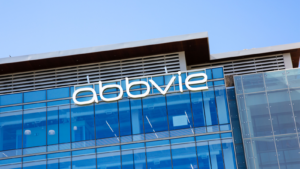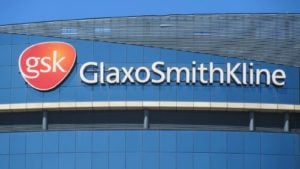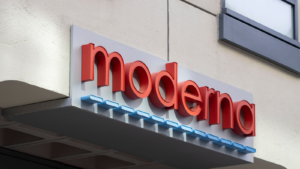With pharmaceutical companies, it’s all about the pipeline of new medications. Drugmakers, and their pharma stocks, are judged based on sales of current medications and potential sales of future prescriptions. Analysts and investors alike are always on the lookout for the next blockbuster drug. This helps to explain why the stocks of pharmaceutical companies with weight-loss medications in their pipeline have gone through the roof this year. Wall Street sees weight loss drugs as the next frontier in medicine with billions of dollars of profits on tap.
In general, the pharmaceutical industry continues to thrive as we spend more, not less, on medications. Global sales of prescription drugs are expected to reach $1.5 trillion this year, according to industry magazine World Pharma Today. Sales are widely expected to continue accelerating for the foreseeable future as consumers shell out money for not only lifesaving medications but also lifestyle drugs. Weight-loss medications are just the latest example of how society is turning to pharmaceutical manufacturers for solutions. However, not all drugmakers are doing well. Many pharma companies are underperforming, big time. Here are three pharma stocks to sell in August before they crash and burn.
AbbVie (ABBV)

AbbVie (NYSE:ABBV) has been sold by a lot of investors since earlier this year when the company lost its exclusive patent protection on bestselling drug Humira that is used to treat inflammatory conditions such as rheumatoid arthritis and psoriasis. Humira sales are tanking at AbbVie, with the company forecasting a 37% year-over-year decline in 2023. That has led to ABBV stock falling 7% so far this year and more declines can be expected. The company has been trying to entice stockholders to stick around for its quarterly dividend payment of $1.48 a share, which yields 3.91%. However, many are taking a pass judging by the share price deflation.
AbbVie is not without a drug pipeline, and the company has been focusing more on driving sales of its other mediations, namely Skyrizi for psoriasis treatments and Rinvoq for various autoimmune diseases. Even here, sales have struggled. Rinvoq sales of $686 million in this year’s first quarter missed analyst consensus estimates of $713.7 million, while Skyrizi’s sales of $1.36 billion fell short of Wall Street forecasts of $1.46 billion, according to Refinitiv data. AbbVie lowered its full-year 2023 profit guidance as it struggles to find a replacement for Humira, which was once the world’s top selling medication and a cash cow for the company. ABBV stock is one of our pharma stocks to avoid in August.
GSK (GSK)

The British pharmaceutical company GSK (NYSE:GSK), formerly known as GlaxoSmithKline, has been a real laggard for many years now. GSK stock is down 8% throughout the last 12 months and has declined 14% after five years. Currently trading at just three times future earnings, the shares look cheap. However are they worth risking yourcapital? The answer is a resounding “not likely.” The drugmaker has struggled since spinning off its consumer health business and sharpening its focus on medication sales. While sales of GSK’s shingles vaccine, called Shingrix, and several HIV medicines have been improving, it has not been enough to push the stock higher.
Other reasons to be skeptical of GSK stock include the company’s pipeline of new drugs, which some analysts claim is weak, and expensive lawsuits in the United States over the company’s now discontinued heartburn medication Zantac. CEO Emma Walmsley has said that she plans to use the $7 billion earned from the sale of the consumer health unit to fund acquisitions that will improve GSK’s prescription drug pipeline. So far, analysts and investors appear to be taking a wait-and-see attitude. Several analysts who track the company’s progress, including at JPMorgan Chase (NYSE:JPM), recently said they see a weaker outlook ahead for GSK, making this a risky pharma stock.
Moderna (MRNA)

Moderna (NASDAQ:MRNA) only has one medication that’s commercially available, its Covid-19 vaccine. As sales of that vaccine crater around the world, so too is MRNA stock. The reality is that MRNA stock has already crashed and burned, having fallen 44% so far in 2023 and currently trading 78% below the all-time high it touched in September 2021. The share price has plummeted as sales of the company’s Covid-19 vaccine fall through the floor. Moderna just reported that Q2 sales of its Covid-19 shot were down 94% from a year earlier. Total revenue at the company declined to $344 million, down 93% from $4.75 billion a year earlier. These results make Moderna one of the worst pharma stocks for August.
While the company continues to talk up its pipeline of new products that includes several cancer treatments and a medication to fight seasonal influenza (the flu), its Covid-19 vaccine is currently Moderna’s only product that generates any revenue. With those sales dwindling, there’s no real reason to buy or hold onto MRNA stock. The company hopes to boost sales this autumn and winter with its updated Covid-19 vaccine that targets the Omicron subvariant XBB.1.5. However, Moderna is is still waiting for the U.S. Food and Drug Administration (FDA) to approve the updated shot and it has not provided a timeline for when it might be commercially available.
On the date of publication, Joel Baglole did not have (either directly or indirectly) any positions in the securities mentioned in this article. The opinions expressed in this article are those of the writer, subject to the InvestorPlace.com Publishing Guidelines.
